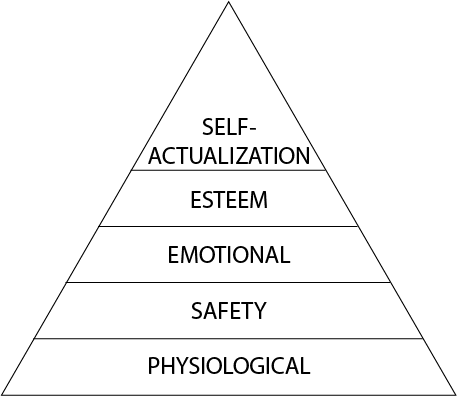Donate!
Please help us on our journey to raise $100 million!
“A few weeks into the new school year, the flu season began. My third-grade student named Luis got the flu and missed three days of school.
After the second day of his absence, I noticed how messy the classroom was at the end of the day. Supplies were left on the wrong shelves, mixed up, or left in students’ desks. Books laid flat on the shelves instead of upright with their binding showing. I had to put everything back.
After the third day of Luis’ absence, I finally realized that it was he who was organizing the supplies at the end of each lesson. Each table had a team leader who was responsible for returning the materials at the end of each lesson. Luis was the team leader for his table, but apparently he had spent extra time fixing other team leader’s mistakes. I never asked him to do this; he just did it on his own and didn’t ask for recognition.
He was displaying integrity - one of the most important character traits that are not explicitly taught in school. However, teachers with strong classroom communities foster this character trait. Through Luis’ actions, I realized I wanted to help other students learn how to foster integrity.
When Luis returned to school, I pulled him aside and told him how I recognized his hard work and integrity. I told him that I noticed how messy the room was without his diligence in fixing other’s mistakes. He was a very shy student, and when I asked him if I could praise him in front of the class for his actions, he was honest with me and said he would like for me not to mention his name. Again, showing his integrity - doing the right thing even when nobody is watching, and not seeking recognition.”
~Lindsey Mancillas, Founding Team Member

Integrity is one of the three core values at Academy of the Renaissance.
People with integrity often don’t realize what they’re doing is beyond any norm. Their actions follow a strong sense of responsibility, code of conduct, and set of morals and virtues. They don’t see what they’re doing as “above and beyond” what should be normal. Hence, they never seek recognition for their actions, and these actions often go unnoticed.
The biggest question is, “how do we develop the qualities of integrity in our students?” For that, we must first look at Abraham Maslow’s hierarchy of needs and motivation.
 At the base of the pyramid, people need their physiological needs met such as food, water, and shelter. Then, they must feel safe within their environment—safe to ask questions, safe to take risks, and safe to make mistakes. This safety allows people to open up and love, and be loved by others, creating a sense of community and belonging. This feeling of true inclusion is an important ingredient for building confidence and esteem. Lastly, people can then reach self-actualization, of which includes the characteristics of having a concern for others as well as strong moral and ethical standards.
At the base of the pyramid, people need their physiological needs met such as food, water, and shelter. Then, they must feel safe within their environment—safe to ask questions, safe to take risks, and safe to make mistakes. This safety allows people to open up and love, and be loved by others, creating a sense of community and belonging. This feeling of true inclusion is an important ingredient for building confidence and esteem. Lastly, people can then reach self-actualization, of which includes the characteristics of having a concern for others as well as strong moral and ethical standards.
Although Maslow’s paper, written in 1943, is titled “A Theory of Human Motivation,” it is less a theory than a fact.
My observations of teachers’ classrooms confirm Maslow’s theory. I noticed that teachers who had a lot of discipline problems achieved only the first level of Maslow’s pyramid—meeting physiological needs. Students often don’t feel safe in the classroom because mistakes, either academic or behaviorally, are often met with harsh verbal consequences. As a result, students cannot progress towards developing integrity without the lower levels of the hierarchy being met.
On the other hand, when observing teachers whose students are rarely found in the discipline office, I could see every level of the pyramid met. Students felt safe emotionally and academically. Mistakes become learning moments instead of moments of shame. Students respected each other and their environment. The way they spoke when answering questions, whether right or wrong, was spoken with confidence. And when the teacher’s back was turned towards the students, they did not take advantage of it to misbehave or become off-tasked.
It takes time to ensure that each level of Maslow’s hierarchy of motivation is met with care. Seasoned teachers who make it a priority to develop and help students meet these needs find teaching enjoyable and rewarding. Operating at (and maintaining) the highest level relieves the constant worry about academic dishonesty, misconduct, and lack of attendance.
It is also equally important to make sure that the needs of the staff are met. Employees need to work in conditions where their physiological needs are met—copy paper, supplies, etc. They will also need to feel safe to raise concerns, ask questions, and take risks with new planned ideas. We want to make sure our staff feel that they are part of an academic community with a strong vision and belief for education. We hope to build esteem through ongoing staff development, autonomy, and personal growth. Like students, when teachers feel like they have had the lower levels met, they will act in ways that will exemplify the academy’s vision and objectives with passion and integrity.
Luis cleaned the class because he’s reached a level where he was no longer self-centered. His needs were met and now he felt compelled to help others by taking on additional responsibilities. He does not need the extrinsic reward of recognition because he’s developed the intrinsic reward from doing the right thing.
Many of us feel like the value of integrity today has been buried deep under the weight of greed, corruption, and dishonesty. Academy of the Renaissance feels that there is still one place we can still make a difference—our schools—so that our children will become global citizens who will influence others to be better. Education is not only a mean by which to improve our physical world, but a mean to improve our humanity.

